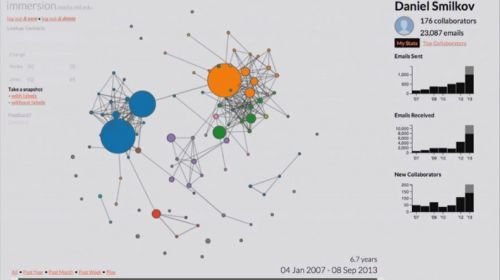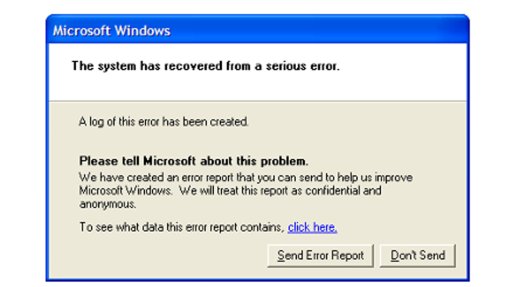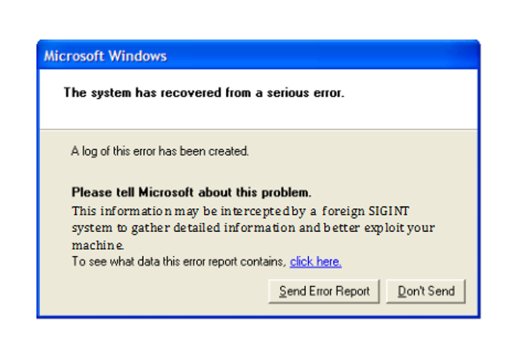Dear America, I Saw You Naked: And yes, we were laughing. Confessions of an ex-TSA agent by Jason Edward Harrington.
WARNING: If news about growing security state in the United States depresses you, skip this post and the article.
Just to get you interested:
I hated it from the beginning. It was a job that had me patting down the crotches of children, the elderly and even infants as part of the post-9/11 airport security show. I confiscated jars of homemade apple butter on the pretense that they could pose threats to national security. I was even required to confiscate nail clippers from airline pilots—the implied logic being that pilots could use the nail clippers to hijack the very planes they were flying.
Once, in 2008, I had to confiscate a bottle of alcohol from a group of Marines coming home from Afghanistan. It was celebration champagne intended for one of the men in the group—a young, decorated soldier. He was in a wheelchair, both legs lost to an I.E.D., and it fell to me to tell this kid who would never walk again that his homecoming champagne had to be taken away in the name of national security.
There I was, an aspiring satire writer, earnestly acting on orders straight out of Catch-22.
I quickly discovered I was working for an agency whose morale was among the lowest in the U.S. government. In private, most TSA officers I talked to told me they felt the agency’s day-to-day operations represented an abuse of public trust and funds.
…
I learned new details from Jason’s article but nothing all that surprising.
What troubles me about Jason’s account is that we as travelers have tolerated the abuse he details, despite there being no evidence that the TSA have ever stopped a single terrorist.
That’s right, there has never even been a false claim by the TSA to having caught a terrorist.
Next 9/11, it will have been thirteen (13) years and the TSA has not captured a single terrorist.
Not to mention that as of 2011, there were 25,000 breaches of airport security since 9/11.
True, the TSA captured 1,813 guns at airport checkpoints in 2013. TSA seizes record number of guns in 2013 But since security testers can get past scans and a pat down search, you wonder how many guns make it onto airplanes. Undercover agent with mock bomb breaches airport security: report
The results of “tests” of TSA security are not published. The alleged reason for non-publication of security testing results is to prevent use of that information by potential hijackers. A more obvious reason is to protect the contracts and jobs of those associated with the farce know as “airport security.”
In fact, there is no evidence that the current security procedures would stop hijackers armed the same way as the 9/11 hijackers. I say no evidence, there is no published evidence. With the known failures of the TSA on weapons and explosives, I would venture to say the 9/11 hijackers would have nothing to fear from today’s airport security.
Understanding a security problem is a lot like understanding an information problem. It isn’t sufficient to pick information that is easy to collect (like phone records) and decide that is the solution to your information problem. Yes, the 9/11 hijackers went through airports, all of them, but that doesn’t make an airport the appropriate place for a solution.
The 9/11 Commission said as much when it found:
The final layer, security on board commercial aircraft, was not designed to counter suicide hijackings.The FAA-approved “Common Strategy” had been elaborated over decades of experience with scores of hijackings, beginning in the 1960s. It taught flight crews that the best way to deal with hijackers was to accommodate their demands, get the plane to land safely, and then let law enforcement or the military handle the situation. According to the FAA, the record had shown that the longer a hijacking persisted, the more likely it was to end peacefully.The strategy operated on the fundamental assumption that hijackers issue negotiable demands (most often for asylum or the release of prisoners) and that, as one FAA official put it,“suicide wasn’t in the game plan” of hijackers. FAA training material provided no guidance for flight crews should violence occur.
This prevailing Common Strategy of cooperation and nonconfrontation meant that even a hardened cockpit door would have made little difference in a hijacking.As the chairman of the Security Committee of the Air Line Pilots Association observed when proposals were made in early 2001 to install reinforced cockpit doors in commercial aircraft,“Even if you make a vault out of the door, if they have a noose around my flight attendant’s neck, I’m going to open the door.” Prior to 9/11, FAA regulations mandated that cockpit doors permit ready access into and out of the cockpit in the event of an emergency. Even so, rules implemented in the 1960s required air crews to keep the cockpit door closed and locked in flight.This requirement was not always observed or vigorously enforced. (footnotes omitted) (The 9/11 Commission Report, page 85)
The solution to suicide hijackings is now well known:
Don’t open the cockpit door and/or allow anyone to take control of the airplane.
The 9/11 hijackers exploited flaws in airport security that persist to this day and a known flaw in U.S. hijacking policy.
Now fear of hijacking is being exploited by those who are providing no more security than existed on 9/11, at a much higher cost.
Topic maps can help connect those dots if you are interested in reducing the terrorism ROI from 9/11.
(Terrorism ROI: Security/Terrorism expenditures of the U.S. since 9/11 divided by the estimated $250,000 invested in 9/11 by terrorists)



